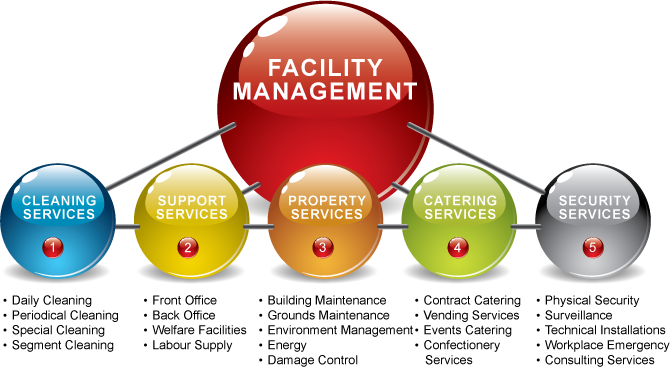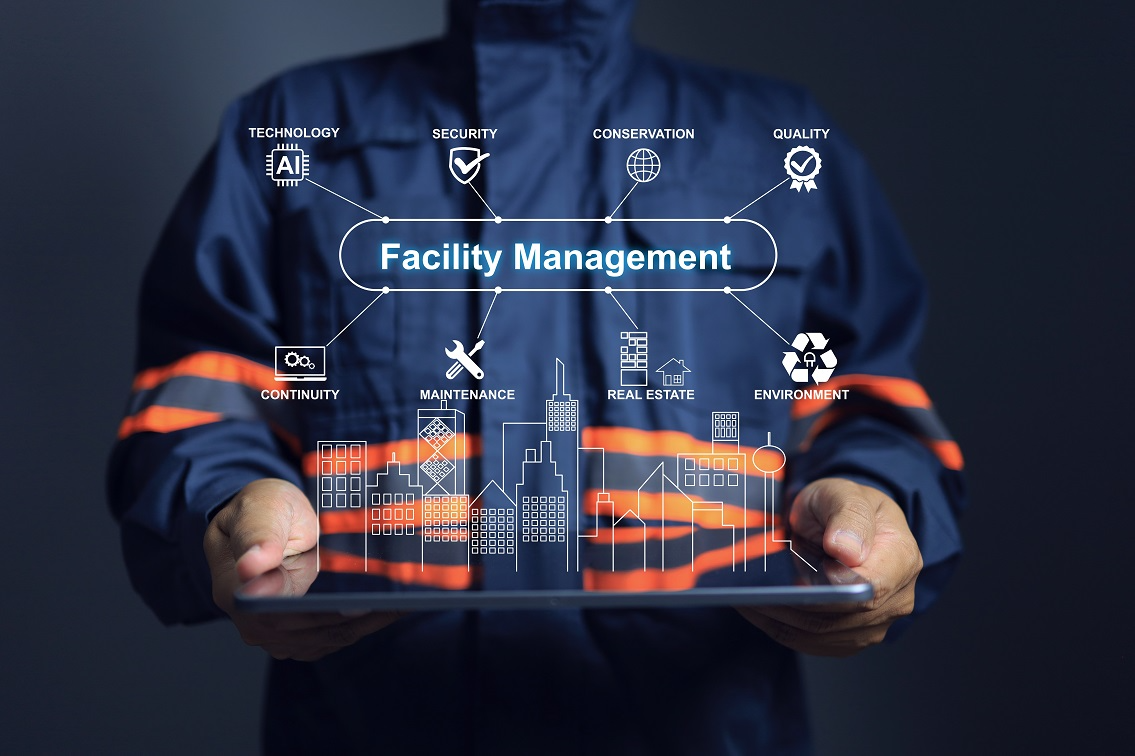Why Facility Management is Important for Property Longevity
Why Facility Management is Important for Property Longevity
Blog Article
Secret Patterns Forming the Future of Center Administration in 2024
As we look ahead to 2024, the landscape of facility management is poised for significant makeover, driven by several essential patterns. The integration of smart building modern technologies and a shift towards data-driven decision-making guarantee to enhance functional effectiveness while focusing on sustainability in method.
Smart Building Technologies
Smart building modern technologies incorporate a broad variety of systems, consisting of smart lights, HVAC controls, and safety and security systems. By incorporating these systems, center supervisors can keep an eye on and adjust criteria in real-time, leading to significant decreases in energy waste and functional expenses. As an example, wise sensing units can spot occupancy levels and change lighting and temperature accordingly, making certain that energy is just used when essential.
Additionally, these innovations facilitate boosted information collection, allowing organizations to track usage patterns and determine opportunities for further enhancements. The application of clever structure innovations not just contributes to sustainability goals however additionally develops healthier job environments that can enhance worker productivity and complete satisfaction.
As we relocate into 2024, the adoption of clever structure technologies will likely accelerate, showing a broader change in the direction of even more intelligent, responsive, and lasting facility management methods.
Data-Driven Decision Making
Progressively, companies are leveraging data-driven choice making to boost center administration practices. By harnessing information analytics, center supervisors can derive workable insights that considerably enhance functional performance and resource allocation. The integration of innovative innovations, such as IoT sensing units and real-time tracking systems, enables the collection of substantial quantities of information on building performance, occupancy rates, and energy intake.
This wealth of details allows center managers to recognize fads, forecast maintenance requirements, and proactively address concerns prior to they intensify. As an example, predictive analytics can anticipate equipment failures, minimizing downtime and repair work prices. Additionally, data visualization devices facilitate better communication among stakeholders, guaranteeing that educated decisions are made collaboratively.
Moreover, data-driven strategies boost calculated planning by allowing facility supervisors to evaluate the efficiency of current methods and make informed choices pertaining to investments in innovation or framework. As companies significantly prioritize functional quality, data-driven choice production is positioned to come to be a keystone of effective center administration methods in 2024 and past. Inevitably, the capacity to leverage information properly will equip organizations to create a lot more effective, effective, and resistant centers.
Sustainability and Green Practices
The emphasis on data-driven decision making normally aligns with the growing focus on sustainability and green techniques within facility management. As companies significantly prioritize environmental duty, facility managers are leveraging analytics to optimize source use, decrease waste, and minimize carbon impacts. This critical method makes it possible for the integration of energy-efficient systems, such as LED lighting, wise a/c controls, and renewable resource resources into center operations.
Additionally, the application of sustainable practices expands beyond power intake. Facility managers are taking on environment-friendly products and promoting reusing efforts to develop a circular economy within their centers. This not only improves the ecological account of the organization but also cultivates a culture of sustainability amongst workers.
Conformity with environmental regulations is another important element driving the adoption of green techniques. By utilizing data analytics, center managers can monitor conformity metrics and determine locations for improvement, making sure adherence to neighborhood and global sustainability criteria.
Crossbreed Work Versions
A substantial change towards crossbreed work models is reshaping the landscape of center management in 2024. This standard integrates remote and in-office job, necessitating a reevaluation of room application, source appropriation, and staff member interaction strategies. Organizations are increasingly acknowledging the significance Get the facts of versatile offices visit our website that cater to diverse needs and preferences.
Center managers should adapt by executing flexible office designs that support collective efforts while offering areas for concentrated job. This includes the combination of innovation to promote seamless interaction and partnership among in-office and remote staff members. Smart building services, geared up with analytics and sensors, permit real-time monitoring of area use, enabling companies to optimize their settings efficiently.
Furthermore, crossbreed job models stress the need for reliable center administration that focuses on worker experience. In significance, the crossbreed work model is revolutionizing center administration, encouraging a positive approach to fulfill the progressing needs of the workforce.
Improved Occupant Health
As organizations accept hybrid job models, an enhanced concentrate on owner wellness is becoming essential to center management techniques. Facility Management. This shift identifies that a healthy and pleased workforce directly affects productivity and retention prices. Facility managers are now focusing on environments that advertise physical and psychological well-being, integrating components such as all-natural illumination, biophilic style, and easily accessible wellness sources

Technology plays a crucial function in this evolution. Smart building systems can keep track of ecological aspects and adjust settings in real-time, making certain optimum convenience degrees - Facility Management. Responses mechanisms, such as tenancy sensing units and staff member surveys, permit facility managers to continuously improve wellness campaigns based on owner requirements.

Verdict
In 2024, the future of facility administration will certainly be significantly influenced by the integration of wise building technologies and data-driven decision-making, promoting boosted operational performance. These trends collectively underscore the evolving landscape of facility management in feedback to contemporary challenges and chances.
Center supervisors are taking on eco-friendly materials and advertising reusing campaigns to produce a round economic climate within their facilities.A considerable change in the direction of hybrid job designs is reshaping the landscape of center monitoring in 2024.Furthermore, hybrid job models highlight the need for effective facility management that focuses on worker experience.As organizations accept hybrid job designs, an increased emphasis on resident health is becoming essential to facility administration approaches.In 2024, the future of facility administration will certainly be considerably influenced by the assimilation of wise building technologies and data-driven decision-making, cultivating boosted functional effectiveness.
Report this page